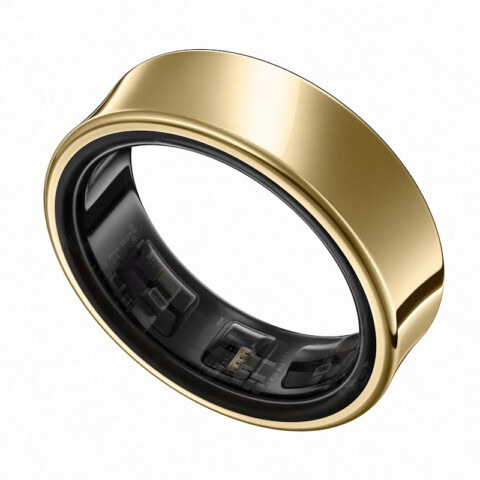PAT PILCHER catches up with Joe Kelly, Huawei’s head of communications, to discuss the current controversy around Huawei and what it means for the company – and consumers.
 While in Barcelona at Mobile World Congress, I caught up with Joe Kelly, Huawei’s head of global communications, and asked him for his take on the controversy around Huawei – specifically, about them being barred from supplying equipment for 5G networks in several countries, including New Zealand. Interestingly, my interview coincided with an announcement that Huawei are to take on the US government in the American federal courts.
While in Barcelona at Mobile World Congress, I caught up with Joe Kelly, Huawei’s head of global communications, and asked him for his take on the controversy around Huawei – specifically, about them being barred from supplying equipment for 5G networks in several countries, including New Zealand. Interestingly, my interview coincided with an announcement that Huawei are to take on the US government in the American federal courts.
Witchdoctor: There’s been a lot of speculation around the moves by the US, Canada, Australia and New Zealand to bar Huawei from 5G build-outs. What is the Huawei take on what is driving this? Is it geopolitical, economic or what?
Joe Kelly: Huawei understands entirely global concerns over cyber-security and the need to maintain networks that are secure. It is a cornerstone of our values as a technology vendor and a major commitment from our company. We believe that the only valid driver of this debate should be a collective determination to make networks secure, and that requires a technological debate, not a political debate. Banning one vendor from 5G buildouts will serve nothing in achieving this important goal.
 WD: What impact are the findings from the UK’s GCHQ and the German Government around security risks likely to have on the ban?
WD: What impact are the findings from the UK’s GCHQ and the German Government around security risks likely to have on the ban?
JK: This is something that Huawei cannot comment on. That will have to be a question for the governments that will make decisions on vendor access. We would hope, however, that the view of the UK and German and all other governments will be informed by fact-based discussion and their experience of working with Huawei over many years, as well as the openness we provide through testing and validation, rather than other considerations.
WD: While Huawei denies there are any security risks, and these claims are backed by the UK and Germany, what about the Chinese National Intelligence Law?
JK: The Chinese Government has said, many times, that the Chinese security law does not require Huawei to install back doors or compromise any customer data. It has also stated that the security law does not apply outside China. Furthermore, Huawei’s founder, Mr Ren Zhengfei has denied that the company has ever been asked, and committed that we would not comply with such requests, if we ever are, to do anything that would jeopardize any customer data or services. WD: Do you think this ban is likely to end in the near future?
WD: Do you think this ban is likely to end in the near future?
JK: That is really an question for those that have implemented the bans to address. All we can say is that we hope so, and know that many customers have the same hope.
WD: What could it mean for operators in countries like New Zealand?
JK: Most operators have said that a ban on Huawei would lead to a delay of up to two years to build out 5G and would also result in higher costs to build 5G. Higher costs for carriers would, in turn, mean consumers having to pay higher subscription fees for delayed 5G services in the future.
WD: What about impacts on mobile users?
JK: A ban on Huawei, we believe, would be bad for consumers who would have to endure delays in getting 5G services and would also face higher costs for those services when they are eventually offered.
 WD: How is this likely to contrast with countries who have chosen to use Huawei 5G network gear?
WD: How is this likely to contrast with countries who have chosen to use Huawei 5G network gear?
JK: Countries that accept Huawei’s 5G technology will have 5G earlier and at lower costs than those that don’t. It may also lead to issues of national competitiveness of markets than ban the leading vendor of 5G because markets that accept Huawei 5G will be able to move forward with no delay and greater certainty.
WD: Rumours are that Huawei could be preparing to sue the United States Government for barring federal agencies from using Huawei products, is there any truth in this? What is Huawei aiming to achieve?
JK: Huawei filed its lawsuit against the US government this week. We aim to challenge a US law, the National Defense Authorisation Act, that bans Huawei from competing in the US market. We consider the law unconstitutional and detrimental to Huawei, as well as its customers and potential customers in the US. We aim, through our legal challenge, to have the law set aside. If that happens, as it should, Huawei can bring more advanced technologies to the United States market and help it build the best 5G networks.
 WD: The Mate X wowed everyone at MWC, but its sticker price seems awfully steep. Will it be the foldable for the 1 percent or will its price come down before it reaches markets such as New Zealand?
WD: The Mate X wowed everyone at MWC, but its sticker price seems awfully steep. Will it be the foldable for the 1 percent or will its price come down before it reaches markets such as New Zealand?
JK: As with all new, leading-edge technologies, we would expect to see prices come down over time as market demand rises and new, more efficient and more automated manufacturing processes can be developed. Huawei continually strives to offer consumers the best technology and innovation at the best price possible.
WD: In recent interviews, Huawei CEO, Ren Zhengfei has said that the US cannot crush Huawei. Can Huawei weather the bans and will they prevail in the end?
JK: Huawei is confident in its future. We never expect to sell every technology we develop to everyone. We operate in a very competitive industry, but our commitment to investing heavily in innovation and in delivering technology that solves customer problems better than our competitors can mean we believe we can see our way through our current challenges and into the future.















